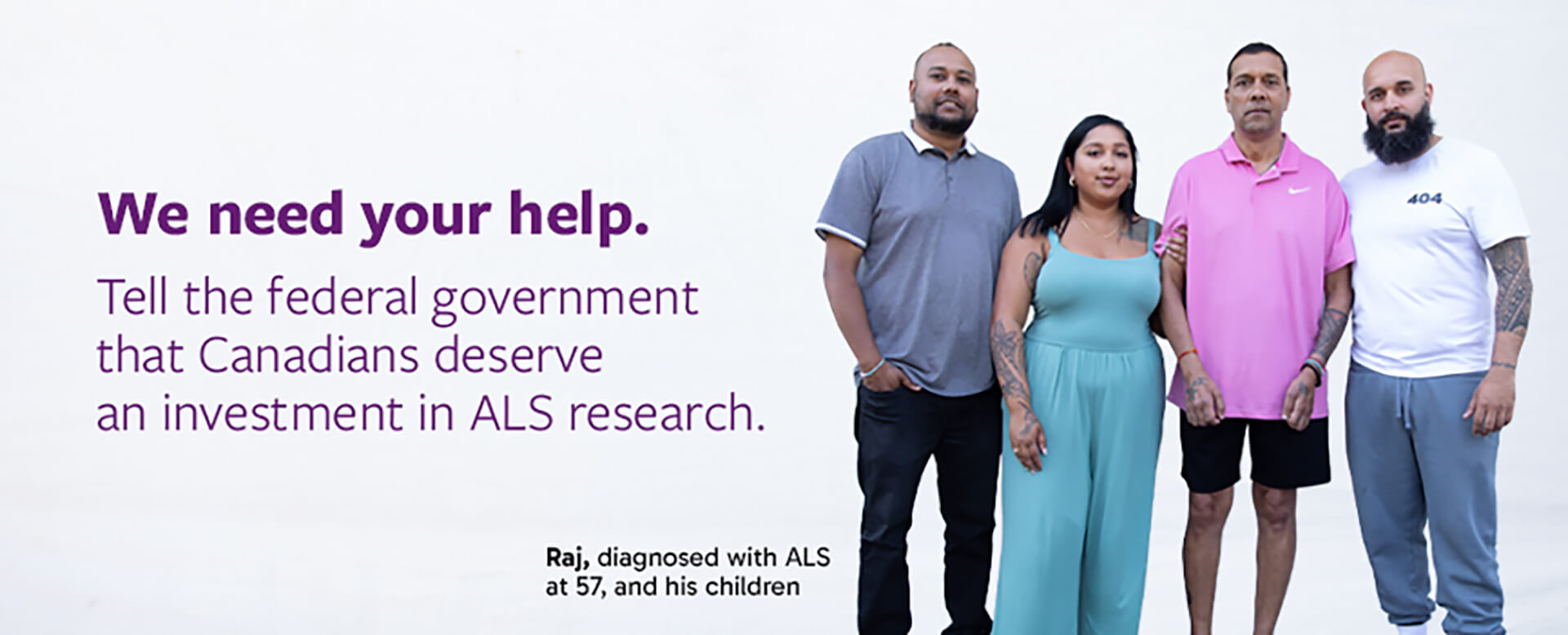Living with ALS
Travelling with ALS
While travel can present unique challenges for people with ALS, a comfortable travel experience is possible with planning and patience. This fact sheet offers tips for planning a trip while living with ALS, whether it is a local day trip or a longer excursion including air travel. These tips may be helpful for things like running errands or visiting a specialist in another city, too.
Living with ALS
Sexuality, intimacy, and ALS
It is important for people with ALS to feel closeness and connection with their intimate partners, and to experience healthy sexuality, whether with a partner or solo. While ALS does not affect sexual functioning directly, the disease progression affects mobility, mood, strength, and breathing, so creativity and experimentation may be required to
achieve satisfying sexual intimacy.
Living with ALS
Palliative care and end-of-life planning in ALS
ALS is a progressive and fatal neurodegenerative disease that does not yet have a cure. When caring for you, your healthcare team will strive to maximize quality of life from the time you are diagnosed until end-of-life.
For Health Care Professionals
ALS Canada Equipment Catalogue
ALS Canada helps people diagnosed with ALS to cope with the daily challenges of decreasing mobility and communication ability. Access to equipment and assistive devices is essential for the safety, comfort, independence, and functioning of a person living with ALS.
Living with ALS
First steps after an ALS diagnosis
Receiving an ALS diagnosis is devastating for all involved. It is normal to feel lost, frightened and unsure of what to do next or who to turn to.
About ALS
ALS Guide: A resource for people living with ALS
Receiving a diagnosis of ALS can be overwhelming. You may experience many different emotions, and you may feel the need to learn more about how this complex disease will affect you.
Living with ALS
Cannabis and ALS
Is cannabis safe for people with ALS? Some people with ALS use cannabis to help treat their symptoms.
Living with ALS
Feeding tubes
A feeding tube, also known as a “g-tube”, is a device that can be used to support the nutritional needs of a person living with ALS.
Living with ALS
ALS & constipation
The bowel and bladder are not typically affected by ALS. However, some people with ALS may experience constipation, which is defined as infrequent bowel movements—usually three times a week or less.
Living with ALS
Ventilation: Options and decision making
Over time, ALS impairs the muscles involved in breathing and coughing but does not impair the lungs.
Living with ALS
ALS & cognitive changes
Until recently, it was believed that ALS did not affect thinking or behavior. Research in the last few years has shown that ALS can cause cognitive and behavioral changes in some people.
Living with ALS
Coping With Grief: Strategies For People Living With ALS
This resource provides information on how to deal with feelings of grief and loss following an ALS diagnosis and as the disease progresses. Grieving is a stressful process that may affect you in ways you didn’t anticipate. Gain the tools to learn how to better cope.
Living with ALS
The ‘How To’ Health Guide
This manual was developed by the Health Charities Coalition of Canada to assist patients, caregivers, friends, and families in understanding and navigating the Canadian healthcare system, and the actions you can take to help you receive the best possible health care.

